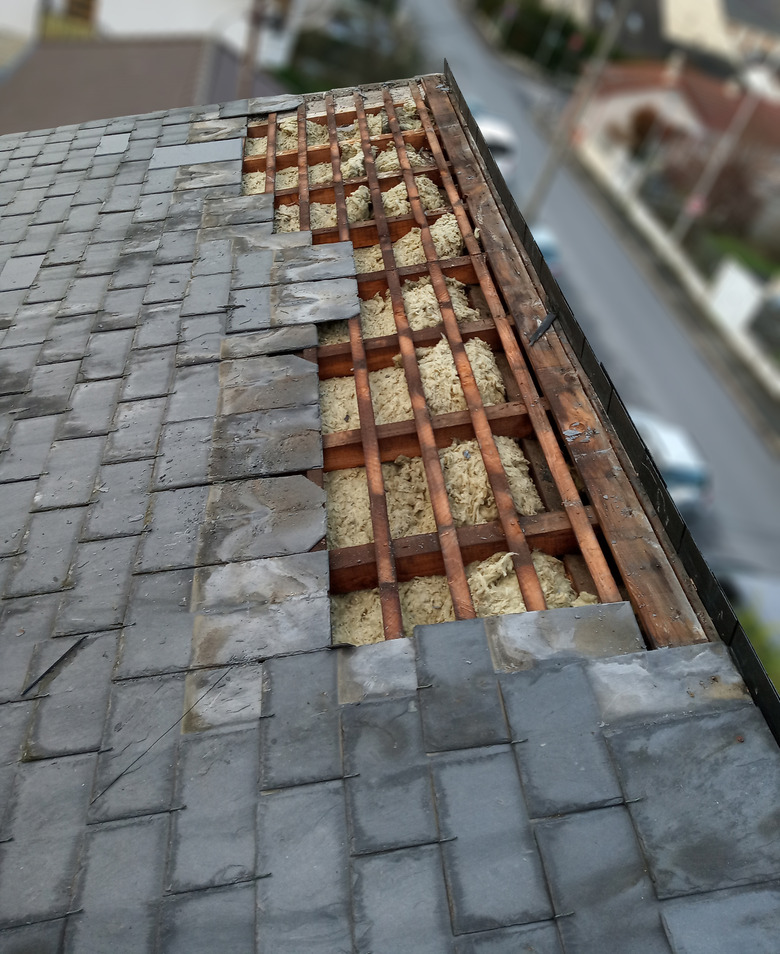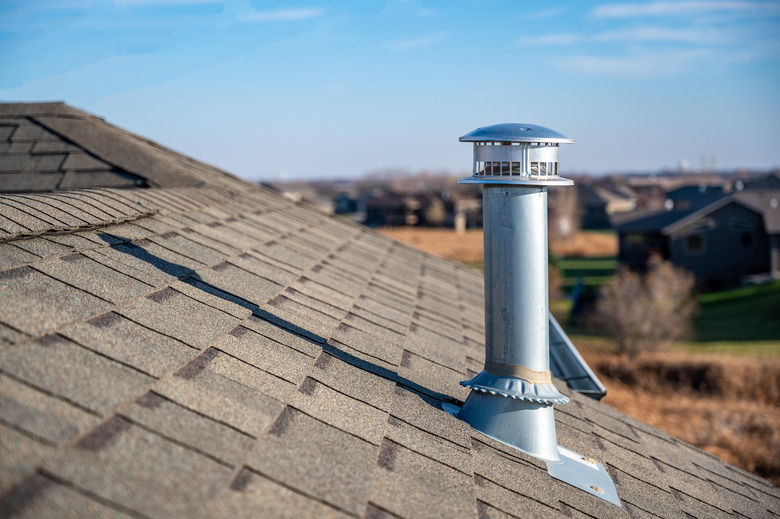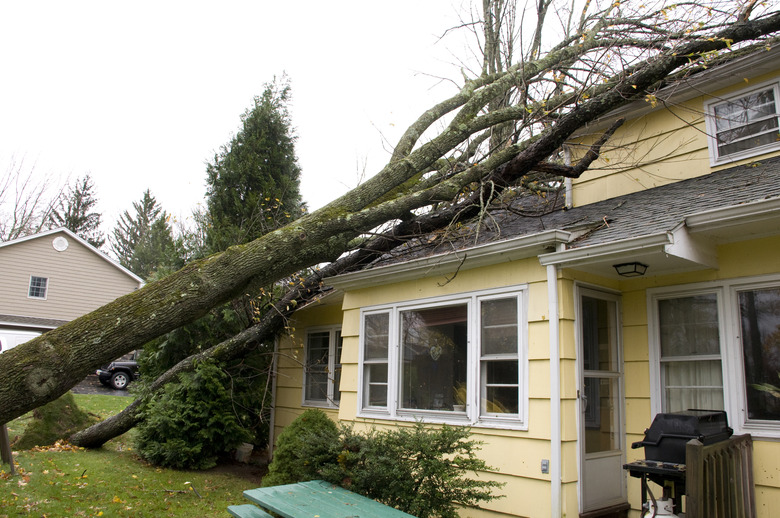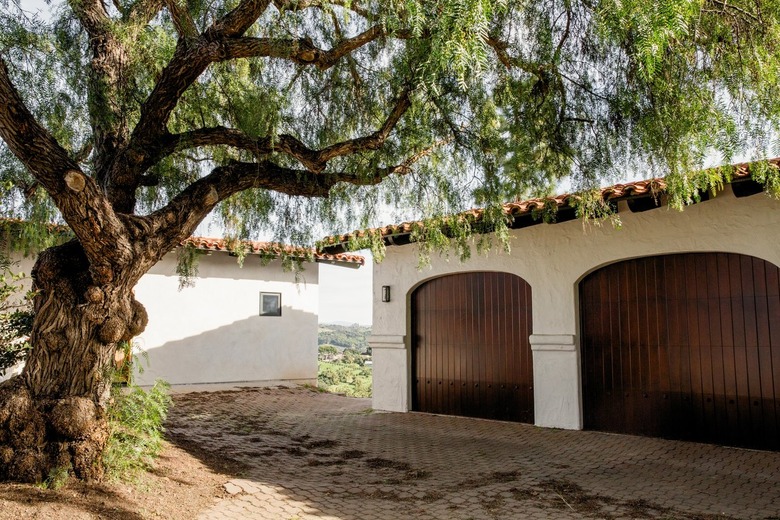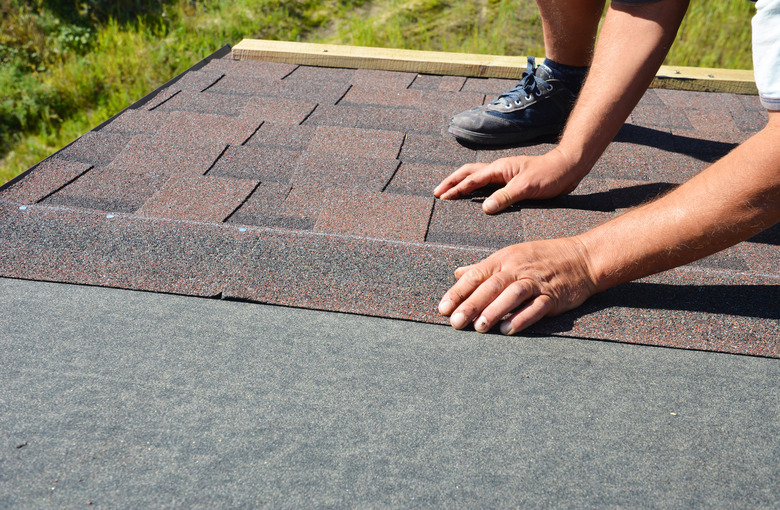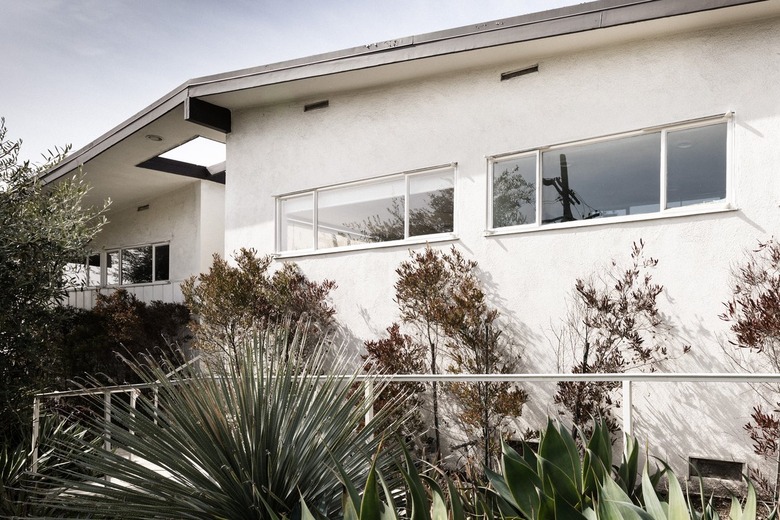10 Roofing Scams You Don't Want To Fall For
The average homeowner usually doesn't know a lot about roofing — and this unfortunately makes lots of room for roofing scams. Unscrupulous contractors may try to talk you into a more expensive roof repair than you need, charge for high-end roofing materials but use poor-quality products, or grab your money and run. To protect yourself, make sure you know the warning signs of a roofing scam. It's important to recognize roofing red flags and common roofing scams and trust your gut if something seems off.
1. Storm Chasers
1. Storm Chasers
Known as storm chasers, there are many roofing companies that travel around the country looking for work after severe weather. These predatory companies prey on those desperate to get their house back in order, many of whom didn't have a new roof in the budget. These companies perform shoddy repairs (if any) and then disappear with your money, never to be heard from again.
To avoid this issue, always work with a local contractor. They'll still be around to honor your warranty or help you if there are issues with the repair. Going local also affords the opportunity to speak with friends and neighbors who have used a certain company in the past.
2. Upfront Cash Payments
2. Upfront Cash Payments
This scenario actually raises two red flags for roofing scams. It's common practice for contractors, including roofers, to get a deposit before they start work. This allows them to get the supplies and materials they need. This upfront payment is usually about 10 to 15 percent. A contractor who wants to be paid in full before they start or who demands a large down payment, say 50 percent, is out of line. This person is probably going to take your payment and disappear.
The same is true of cash. A roofer who insists on getting paid in cash is a roofer who doesn't want a paper trail. Make sure you pay with a check or credit card so you have proof of any amounts you paid.
3. No Contract
3. No Contract
If your roofing contractor agrees to start your roofing job with just a handshake, run away. A detailed contract outlining the scope of the work, the materials to be used, and the payment schedule protects both you and the roofer. Once again, a lack of a contract means a lack of a paper trail. If something goes wrong, you don't want to be in a "he said she said" situation. Your contractor needs to get you some paperwork.
4. Unsolicited Roofing Inspections
4. Unsolicited Roofing Inspections
There should never be someone walking around on your roof unless you gave them permission to be there. Anyone who comes to your door claiming to have found problems while giving you a free but unsolicited roofing inspection is trouble. The correct question to ask them is not "what did you find?" It's "who are you and why were you looking at my roof?"
If you're concerned that there could be a genuine problem with your roof, call a local company you trust and have that company inspect it. If it finds a problem, give it the job of fixing it. Never trust a roofer who knocks on your door uninvited, however.
5. Exaggerations on Damage
5. Exaggerations on Damage
Another popular roofing scam is to exaggerate the actual damage present on your roof. Say, for example, that a tree limb fell on the right side of your roof and caused some damage. The left side of your roof was completely unscathed during the incident. If a roofer checks out the damage and insists your entire roof needs to be replaced, they better have a pretty darn convincing story.
In fact, they better have proof. In today's world, everyone has a cell phone with a camera. If you think your roofer is exaggerating the extent of your problem, ask them to take a picture and show it to you.
6. Super Low Estimates
6. Super Low Estimates
Ask three different roofing companies for estimates and they'll come back with three different numbers. They should, however, all be in the same ballpark. If one of the roofers comes in significantly lower than the others, it's likely a roofing scam. Here's how it works.
The roofer gives you a phenomenally low bid, and you take it. It's only then that you realize that their estimate didn't include materials or important parts of the job that other roofers factored in. It's also common for low bidders to rip off your existing roof and then "find" much more extensive — and expensive — damage that needs repairing. This comes at an additional cost, of course.
7. High-Pressure Roofing Scams
7. High-Pressure Roofing Scams
A roof is a big purchase, and roofers know it. A reputable contractor will take the time to answer all of your questions and give you space to decide if you're ready to tackle such a big project. Scammers, on the other hand, want you to sign on the dotted line yesterday. Some will even make up stories to try to pressure you.
One common tactic is when a roofer tells you they just had a job on your street. As the story goes, the customer backed out at the very last minute, and now the contractor is stuck with all the materials and time he intended to use on that roof. This, of course, means they can give you a great deal on a new roof, but you have to be willing to start the work now. A roofer who needs a decision today is one with whom you shouldn't work.
8. A Lack of Paperwork
8. A Lack of Paperwork
A roofing contractor should absolutely be willing to show you both their contractors' license and proof of insurance. Any roofer who doesn't have these things or who hesitates when asked to produce them is one with whom you don't want to work. The same is true of portfolios and references. True craftsmen are proud of their work and love showing it off. If a roofer doesn't have a portfolio, you should wonder why.
9. The Wrong Materials
9. The Wrong Materials
As part of the estimating and contracting processes, you and your roofer should detail exactly what type of materials you are getting. Sometimes, roofers steer homeowners toward selecting expensive high-end shingles because they last longer and work better. Other times, roofers steer homeowners toward expensive shingles and then order inexpensive ones, pocketing the price difference.
You can help minimize this issue by paying attention to what shows up at your house. If your contract says that you're getting a particular line of Owens Corning shingles, for instance, look at the boxes when they're delivered. If they say Big Bob's House of Roofing instead of Owens Corning (or if they aren't the specific product specified in the contract), you should absolutely ask your roofer about it.
10. They Want an AOB
10. They Want an AOB
Sometimes, when an insurance company is involved, roofers will ask homeowners to sign an assignment of benefits (AOB). Never do this. By signing, you agree that the contractor gets all the insurance claim money rather than you. This is now illegal in many states but not all. If a contractor asks you for an AOB, they're not the one.
